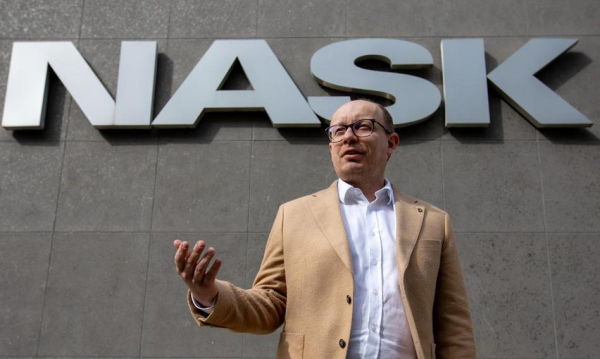I don’t have the impression that any of the teams are playing unfairly – NASK director Dr. Radosław Nielek told “Rzeczpospolita”. He referred, among other things, to the issue of Facebook spots promoting Rafał Trzaskowski, which were supposedly financed from abroad. He indicated that the campaign had been reported to Meta.

Wirtualna Polska wrote on Thursday that an employee and volunteers of the Akcja Demokracja foundation are behind the political ads published on the Internet promoting Rafał Trzaskowski and attacking his competitors. As wp.pl writes, Internet users have been paying attention to these ads, which appear on Facebook, for several weeks. On Wednesday, the Scientific and Academic Computer Network (NASK) responded. It admitted that the advertising accounts involved in the campaign spent more on political materials in the last seven days than any election committee. The ABW has already been informed about the case, which is to determine the source of the campaign’s origin and financing.
Among other things, NASK director Dr. Radosław Nielek was asked about these issues in an interview with “Rz”. He emphasized that in Poland, agitation can be conducted without the committee’s consent based on the regulations from 2018.
See alsoHow artificial intelligence will affect the work of accountants
“It is debatable whether this agitation can be related to the expenditure of significant funds, especially for external entities. And this is the element that is being discussed in the context of electoral law,” said Nielek. “The issue of financing the campaign or coordinating a campaign supporting a candidate or harming other candidates from abroad is a completely different matter, as to which there is no doubt that this is an illegal action,” he added.
Nielek was asked about a Facebook advertising campaign worth PLN 460,000. In the spots published, participants expressed negative opinions about Rafał Trzaskowski’s rivals – Karol Nawrocki supported by PiS and Sławomir Mentzen from Konfederacja. On the other hand, the KO candidate was praised.
“Since the beginning of this year, we have reported 10,000 accounts for removal, identifying various accounts, those that propagated criminal threats, those that directly propagated disinformation. Those that were part of a coordinated effort aimed at spreading disinformation. And this is one such campaign that we have identified,” he said. Nielek noted that the campaign in question was reported to Meta, the corporation that owns Facebook. When asked about the date, he said that “it was the end of last week.”
“We are not involved in assessing whether or not an election campaign was supported. The assessment of the event that took place, i.e. the campaign, its impact, discussions about it, is the domain of politicians. We are not involved in that. I.e. some politicians will say that the campaign had an element of support, and some will say that it was done to harm the candidate,” Nielek said.
The NASK director positively assessed the work of the candidate teams. “I don’t have the impression that any of the teams are playing unfair,” he emphasized.
Wirtualna Polska reported that since April 10, Facebook has been “flooded with political ads”. They were posted by two previously completely unknown profiles, namely “Wiesz Jak Nie Jest” and “Stół Dorosłych”. It is not known who manages these profiles. Some of the ads – and all of them gave the impression of conversations with ordinary citizens – strongly criticized the candidates in the elections, Karol Nawrocki supported by PiS, and the candidate of the Confederation, Sławomir Mentzen. The second part praised Trzaskowski.
Wp.pl wrote that the political ads promoting Trzaskowski are the work of an employee and volunteers of the Akcja Demokracja foundation, whose president is Jakub Kocjan, who was an assistant to the KO MP until a few weeks ago. The portal’s journalists managed to identify three people appearing in the ads and contact them. All of them stated that they were encouraged to participate in the ads by people associated with the Akcja Demokracja foundation. The foundation’s board admitted that the employee helped the organization’s foreign partner “find people willing to participate in the recordings”. The company in question is Estratos Digital GmbH, based in Vienna, which provides the foundation with “technological services and communications consultations”.
The first round of the presidential elections will be held on May 18, with a possible second round on June 1. (PAP)
mt/ itm/